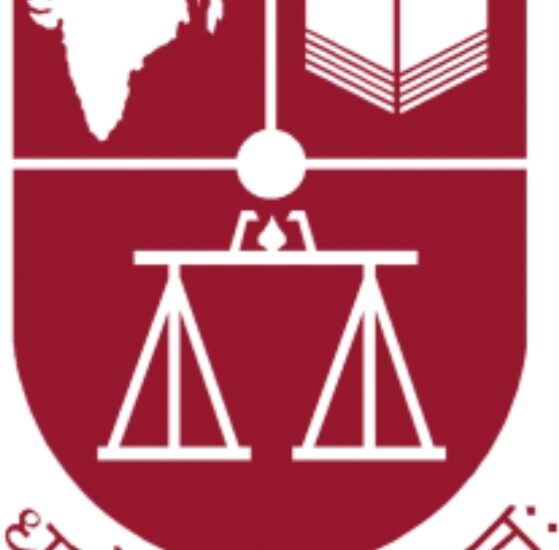What Is The National Law School of India?
The National Law School of India (NLSIR) is a bi-annual, student edited, peer-reviewed law review published by National Law School of India University (NLSIU), Bengaluru. NLSIR, which was first published in 1988 under its erstwhile title ‘Student Advocate Journal’, is the flagship law review of NLSIU and holds the unique distinction of being cited multiple times by the Supreme Court of India.
Introduction:
The freedom of expression finds expression in the world’s largest democracy in Article 19(1)(a) of the Constitution of India. In any democratic polity, accountability, checks and balances, and transparency among various institutions are of paramount importance.
As an institution, the media and the free press play a critical role in upholding accountability and transparency norms in public life. In India, particularly, the press has often been referred to as the “fourth pillar” of Indian democratic life.
Over time, serious questions have been raised about the independence of the media and the press in India. In 2023, India ranked 161 out of 180 countries in the Press Freedom Index, the lowest it has ever been. This comes at the same time that state authorities arrested Prabir Purkayastha, the editor of News Click, an independent Indian news website. Purkayastha was booked under terror charges on allegations of money laundering and promoting Chinese propaganda.
The press in India is, and has always been, a prominent institution in exposing various issues that affect public life. The undermining of such an institution raises important questions of academic interest and warrants in-depth analyses.
Volume 36(2) will focus on the multiple legal issues around press freedom in India. The Special Issue aims to analyse the relationship between various laws and press freedom. In doing so, it emphasises the deeply intertwined relationship between press freedom and democracy in the Indian context.
What Are The Details Of The Opportunity?
- Vision for the Issue:
- The vision underlying the issue is prompted by repeated instances of undue influence, both overt and subtle, that have raised questions about the extent of freedom of press in India. Governmental interventions, as well as corporate influence, have contributed extensively to the suppression of the free press.
- There have been numerous instances of such undue influence over the past few years. From the crackdown of press freedom in Jammu & Kashmir, to the blocking of independent news outlets, to increasing concentration vis-à-vis corporate ownership of media houses, the press in India has come under increased strain. This raises pertinent issues with respect to the health of Indian democracy and public discourse.
- This issue seeks to unpack all these factors. An illustrative list of issues that we seek to cover in this Special Issue are:
- Investigating how cultural norms, social identities, and power dynamics shape freedom of speech and expression in India, and the implications for inclusivity and social cohesion.
- Analysing the influence of economic factors, such as corporate ownership, advertising revenue, and market competition, on media independence and editorial autonomy.
- Exploring the role of digital platforms, social media, and online journalism in facilitating or restricting freedom of speech, and the challenges posed by online censorship and misinformation/disinformation.
- Assessing the adequacy and effectiveness of existing laws and regulations governing press freedom and exploring potential reforms to enhance media freedom and accountability.
- Assessing the legal framework governing corporate liability for media content, including defamation, privacy violations, and other legal challenges, and analysing case law and legislative developments in this area.
- Examining the role of whistle-blowers in exposing corporate malfeasance, corruption, and unethical practices in the media industry, and assessing the adequacy of legal protections and institutional mechanisms for safeguarding whistle-blowers’ rights.
- Assessing the constitutional protections afforded to journalists’ rights, including the freedom to report, investigate, and publish news without fear of reprisal, and analysing judicial responses to attacks on journalists and media organizations.
- The Special Issue will include both invited as well as submitted contributions. We cordially invite scholars from diverse areas of study to be part of, and provide their own contributions to, this Special Issue. We invite scholarly articles, empirical research, policy analyses, etc., that contribute to understanding press freedom in India. Interdisciplinary approaches and comparative law papers are particularly welcome.
- Submission Guidelines:
- Submissions for the Special Issue may be made in accordance with our Submission Guidelines under any of the mentioned categories. For further clarity on the categories, please refer to the link provided at the end of this post.
- Interested authors are requested to submit their manuscripts via our Digital Commons platform. Please refer to the link for the guide mentioned at the end of this post for instructions and clarifications with respect to navigating Digital Commons.
- Deadline: 15th May 2024.
- NOTE: That we do not accept submissions over email.
- NLSIR Symposium:
- Once the Special Issue is finalized, we will invite all authors to be a part of the annual NLSIR Symposium conducted in the form of a roundtable discussion. The transcript of the same will be published as a part of Vol. 36(2)
For More Information:
- Contact Details: Email: mail.nlsir@gmail.com.
CLICK HERE For The Submission Guidelines
 558
558

